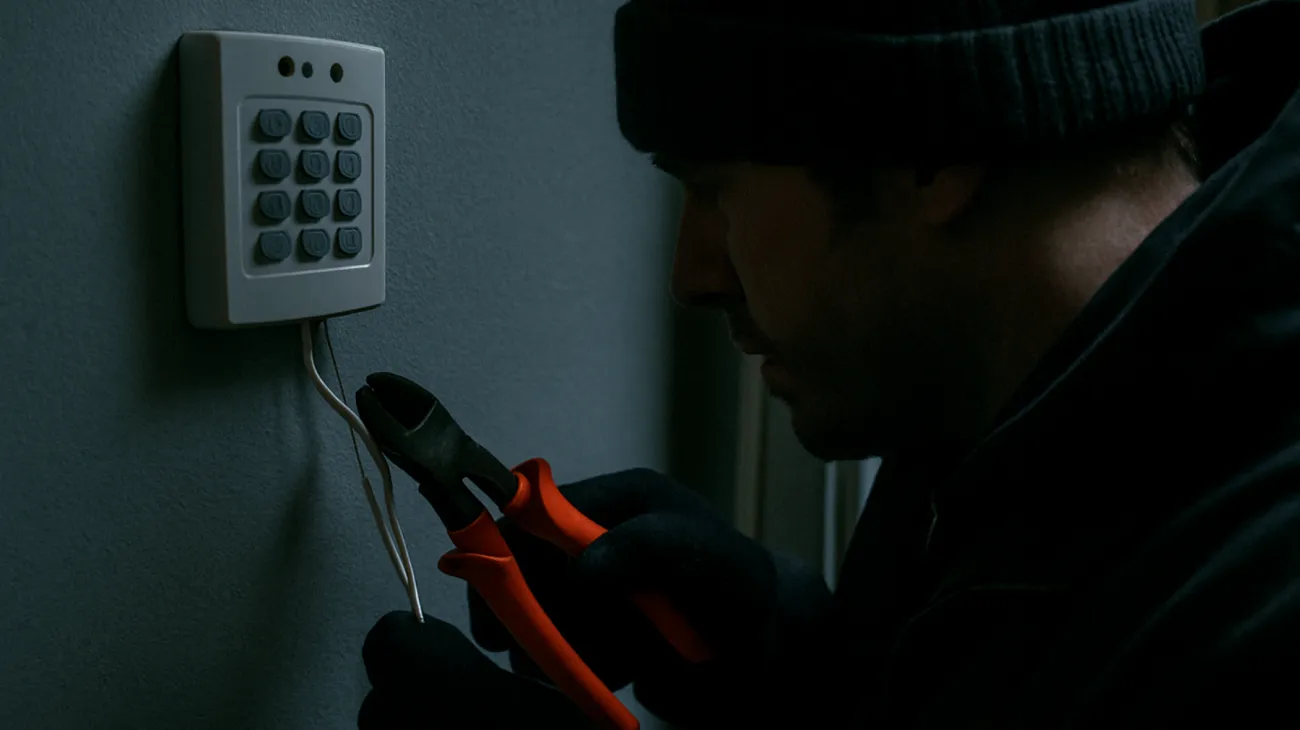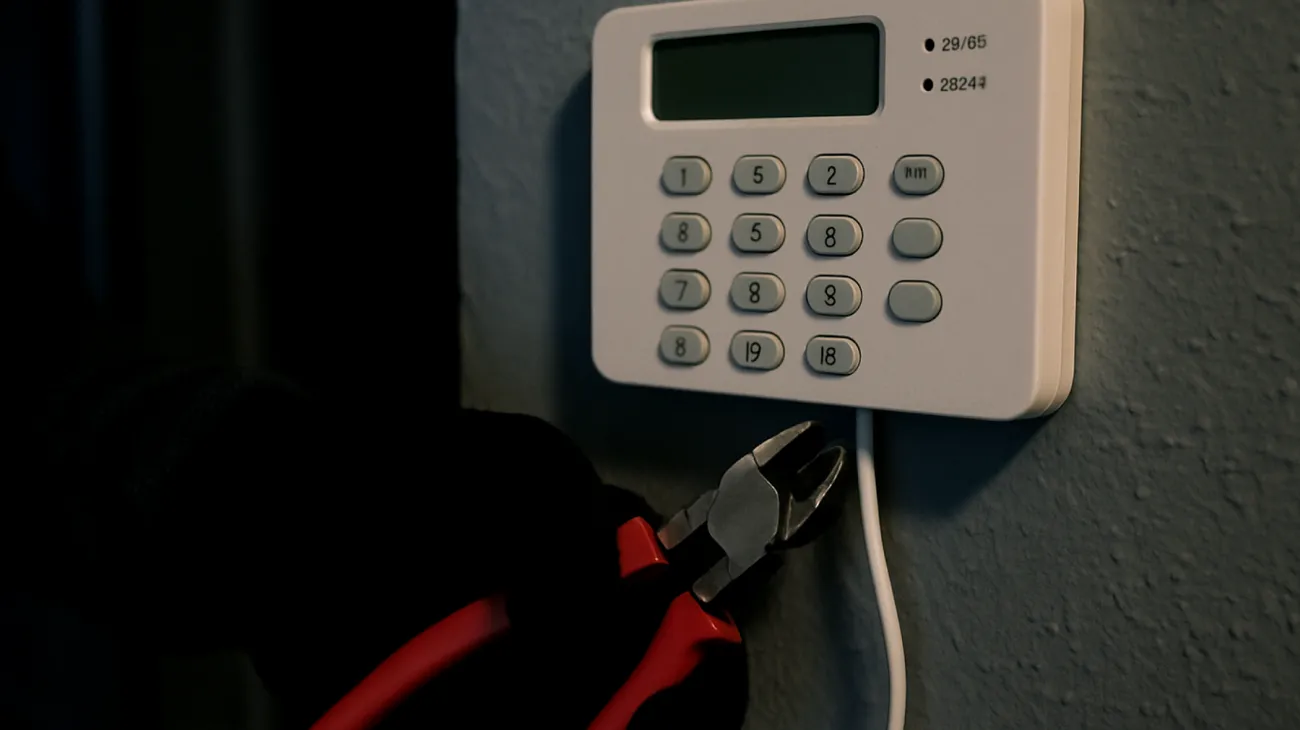When Home Security Systems Go Silent: The Power Problem Nobody Talks About
Home security systems promise round-the-clock protection, but they harbor a critical weakness that most homeowners never consider until it’s too late. The moment your electricity cuts out, that sophisticated alarm system often becomes as useful as a paperweight. Whether it’s a storm knocking out power lines, grid overload during peak demand, or even deliberate tampering by someone who knows your system’s vulnerabilities, a powerless security system leaves your home completely exposed.
This isn’t just a theoretical concern. Power outages have been increasing in frequency across North America, with most Americans experiencing several interruptions each year. During these critical moments when visibility drops and emergency services get overwhelmed, your security system fails precisely when you need it most. Even systems with backup batteries can let you down if those batteries are old, poorly maintained, or simply forgotten about completely.
The good news? You don’t need to rewire your house or spend thousands on professional installations to fix this problem. There are surprisingly simple solutions that can transform your vulnerable system into a resilient guardian that keeps working no matter what the power grid throws at you.
Why Your Backup Battery Isn’t Really Backing You Up
Most home alarm systems come with built-in backup batteries that seem like they should solve the power problem. These small sealed batteries are designed to keep your system running for anywhere from 4 to 24 hours during outages. But here’s what the marketing brochures don’t tell you: real-world performance is dramatically different from those optimistic specifications.
Those backup batteries start losing capacity from day one. Temperature swings in your basement or utility closet can cut their effectiveness by up to half. After three years of service, a battery that once provided 12 hours of protection might barely last 2-4 hours. Even worse, most residential alarm panels only give you basic low-battery warnings that are easy to miss or ignore until your system dies completely.
The problem goes deeper than just battery degradation. When power fails, your alarm system might seem fine initially, but a cascade of failures often follows. Your internet router dies first, cutting off alerts to your phone and monitoring company. If cellular backup exists, it often gets overwhelmed during widespread outages when everyone’s trying to use their phones. By the time your alarm’s backup battery finally gives up, you might have no way of knowing your security system has been down for hours.
Security professionals report that power-related failures account for a huge percentage of their service calls, especially during storm season. More concerning, law enforcement confirms that experienced burglars increasingly understand and exploit these power vulnerabilities. That dramatic movie scene of cutting power to disable alarms? It’s not just Hollywood fiction.
The UPS Solution That Actually Works
The most effective fix for alarm system power problems doesn’t come from the security industry at all. It comes from the computer world: Uninterruptible Power Supply units, or UPS systems. These devices, commonly used to protect computers and network equipment, offer several major advantages over traditional alarm backup batteries.
Modern UPS units include sophisticated battery management that extends battery life, provides detailed status monitoring, and uses user-replaceable batteries that make maintenance simple. Since most residential alarm systems consume very little power, a UPS rated for 300-600 VA can easily support your entire security system for extended periods while providing extra capacity for your router, modem, and other critical networking equipment.
The implementation couldn’t be simpler. You don’t modify your alarm system at all. Instead, you plug your alarm panel’s power supply into the UPS, which plugs into your wall outlet. This creates multiple layers of protection without voiding warranties or creating safety hazards. Quality UPS units also filter out voltage fluctuations and electrical noise that can cause false alarms or system instability.
When selecting a UPS for security applications, look for pure sine wave output. While more expensive than modified sine wave units, they ensure compatibility with sensitive alarm electronics and prevent long-term damage. The investment typically costs less than two years of professional monitoring fees while providing protection that often exceeds professionally installed backup systems.
Keeping Connected When the Grid Goes Down
Having backup power for your alarm system is only half the battle. Modern security systems rely heavily on internet connectivity for smartphone alerts, cloud storage, and professional monitoring. When your router and modem lose power, even a perfectly functioning alarm system becomes isolated and unable to communicate with you or emergency services.
This is where extending UPS protection to your networking equipment becomes crucial. By keeping your router, modem, and wireless access points powered during outages, you maintain the communication channels that make modern security systems effective. Cellular security systems are less vulnerable to power disruptions, but even they benefit from maintained internet connectivity as a backup communication path.
Smart home technology offers additional monitoring options that work independently of your alarm system. Smart plugs with power monitoring can detect when your security equipment loses primary power and send immediate smartphone notifications, even if the alarm system itself lacks this capability. This creates redundant notification channels that remain functional during various failure scenarios.

Advanced Integration Strategies
For homeowners dealing with frequent or extended outages, solar-enhanced backup systems provide genuine energy independence for security applications. Small solar installations of 10-50 watts can maintain alarm systems, networking equipment, and basic lighting indefinitely under most weather conditions. The key is matching solar generation capacity to the actual power consumption of essential security equipment.
Modern lithium iron phosphate batteries work exceptionally well in solar security systems. They tolerate frequent charge-discharge cycles better than traditional lead-acid batteries and provide consistent power output throughout their operational life. When paired with appropriate charge controllers, these systems can maintain security operations for weeks during extended grid failures.
The technical implementation involves standard solar components: panels, charge controllers, and deep-cycle batteries designed for continuous operation. This represents a middle ground between simple battery backup and expensive whole-house solar installations, focusing specifically on critical security loads.
Maintenance That Actually Gets Done
The most sophisticated backup system fails without proper maintenance, but maintenance protocols must be simple enough for busy homeowners to execute consistently. Battery technology experts recommend calendar-based maintenance schedules rather than relying on system alerts alone. Backup batteries degrade predictably over time, and proactive replacement prevents failures during emergencies.
Effective testing involves quarterly simulated outages to verify backup performance. Simply unplugging your UPS for a few hours reveals actual backup capacity and helps identify developing problems before they become critical. This testing also familiarizes you with your system’s behavior during outages, reducing confusion during real emergencies.
- Test backup systems quarterly by simulating power outages
- Record battery installation dates and test results in a simple log
- Replace UPS batteries every 3-5 years based on calendar dates, not just performance
- Monitor UPS status lights and displays for early warning signs
- Keep spare batteries on hand for critical systems
Documentation strategies proven in engineering applications involve simple maintenance logs that track battery installation dates, test results, and replacement schedules. This helps identify patterns indicating impending failures and ensures maintenance stays on schedule even as years pass.
Economic Benefits and Long-Term Value
Cost-benefit analysis reveals that DIY backup power solutions offer exceptional value compared to professional installations or premium alarm features. Quality UPS systems suitable for residential security typically cost less than two years of monitoring fees while providing superior protection. Maintenance costs remain predictable since replacement batteries are standardized, widely available, and user-installable.
The compatibility advantages of UPS-based solutions extend to future system upgrades. Unlike proprietary backup batteries tied to specific alarm systems, UPS units work with any equipment operating on standard AC power. This compatibility makes UPS systems part of your home’s permanent electrical infrastructure rather than temporary accessories.
Home insurance professionals note that maintaining functional security systems during power outages can positively affect both coverage terms and claims processing. The potential losses from security system failures during critical events far exceed the modest cost of reliable backup power systems.
Building True Security Independence
Reliable home security during power outages doesn’t require expensive professional installations or complex whole-house generators. The solution lies in understanding the fundamental vulnerabilities affecting most residential security systems and implementing straightforward fixes using readily available technology.
UPS backup power combined with proper maintenance protocols and smart notification systems creates security infrastructure that functions regardless of grid conditions. These solutions work with existing alarm systems while providing a foundation for future improvements and upgrades. Most importantly, they put control directly in your hands rather than depending on professional service calls or hoping backup batteries work when needed.
- UPS systems provide superior backup power compared to built-in alarm batteries
- Extending backup power to networking equipment maintains critical communication channels
- Solar enhancement offers unlimited backup duration for extended outages
- Simple maintenance protocols ensure long-term reliability
- Smart monitoring creates multiple notification channels independent of the alarm system
The result is security that truly operates around the clock, not just when the power company cooperates, but during the challenging conditions when reliable protection matters most. By taking control of your security system’s power infrastructure, you create the foundation for genuine peace of mind that persists regardless of what happens to the electrical grid.
Your home’s security shouldn’t depend on the reliability of aging power infrastructure or the hope that backup batteries will work when tested by real emergencies. With proper backup power systems in place, your security operates independently, maintaining protection for your family and property no matter what challenges the outside world presents.
Table of Contents

